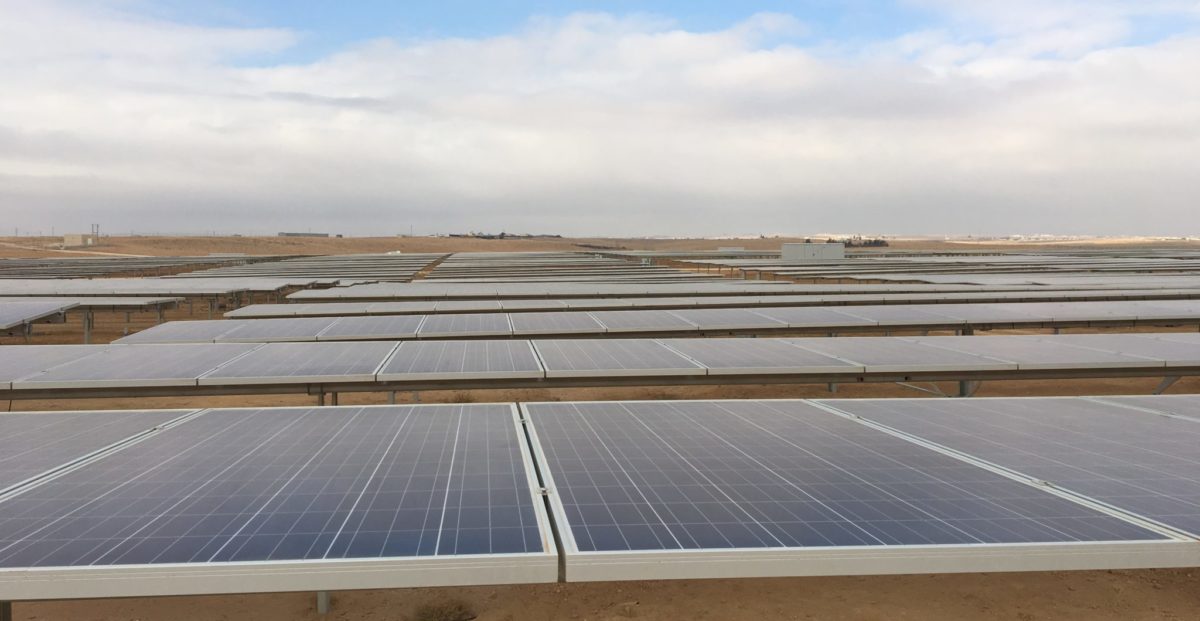According to local press reports that cite the Energy and Minerals Regulatory Commission statistics, Jordan presently has 747 PV systems installed totaling 23.4 MW capacity. Specifically, these systems are installed at 515 private residencies, 80 mosques, 65 businesses, 30 schools, 20 public sector buildings, nine banks, nine hospitals, eight telecommunication stations, four churches, four private universities and two farms.
Samer Zawaydeh, a Jordan-based freelance engineering consultant who is also assistant director at the US-based Association of Energy Engineers, told pv magazine that these figures predominantly represent net-metering installations.
“The Renewable Energy and Energy Efficiency Law 13 (REEEL 13), issued 2012, allows any electricity consumer to cover 100% of their electricity needs by installing net-metering solar PV systems,” said Zawaydeh.
REEEl 13 law has encouraged both residential and business/commercial electricity consumers to install net-metering PV systems. “Jordan's residential sector has a tariff ranging from $0.05 to $0.37/KWh,” explained Zawaydeh.
“Therefore, large consumers paying high electricity tariffs are moving towards installing PV systems. The payback period for them is 30 to 36 months, depending on the details of the components of the installed systems.”
Jordan's vertically integrated electricity sector has increased electricity prices since 2008 in an effort to cover additional generation costs. Given the country's rush to install a plethora of new plants, including at least one nuclear power plant, to face its vast energy dependency, it is very possible that electricity prices will rise even further in the coming years.
There is no doubt, argues Zawaydeh, that locals have embraced solar technology. “The decentralized residential and commercial solar PV market started with around 40 companies in December 2012 and now has hundreds of companies working in the field. A simple search for companies with renewable energy as one of their business activities will yield in excess of 500 hits. More than five thousand people are working in the supply chain from design, procurement, electrical, mechanical and civil Installation, quality control, safety, commissioning and operation and maintenance,” he added.
Worth mentioning, details Zawaydeh, “is that bylaw No. 10 under the REEEL 13 provides custom duty exemption and sales tax exemption for renewable energy systems as incentive to investors in these fields”. Bylaw No. 10 is applicable to all renewable energy systems entering Jordan, and thus is helping renewables investments at all levels.
Jordan's utility-scale PV sector is also bearing fruit with 200 MW of medium- and large-size solar farms currently being installed, and an additional 200 MW tender concluding yesterday, Tuesday February 10.
Popular content
This content is protected by copyright and may not be reused. If you want to cooperate with us and would like to reuse some of our content, please contact: editors@pv-magazine.com.


By submitting this form you agree to pv magazine using your data for the purposes of publishing your comment.
Your personal data will only be disclosed or otherwise transmitted to third parties for the purposes of spam filtering or if this is necessary for technical maintenance of the website. Any other transfer to third parties will not take place unless this is justified on the basis of applicable data protection regulations or if pv magazine is legally obliged to do so.
You may revoke this consent at any time with effect for the future, in which case your personal data will be deleted immediately. Otherwise, your data will be deleted if pv magazine has processed your request or the purpose of data storage is fulfilled.
Further information on data privacy can be found in our Data Protection Policy.